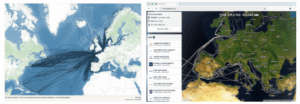VAWG sector calls for all political parties to end violence against women and girls for good

Ahead of the next general election, a coalition of 70 leading organisations working to end violence against women and girls (VAWG) has today (18th September 2023) published a joint manifesto calling on all political parties to adopt its priorities for ending this abuse.
The VAWG experts and specialist organisations have come together to set out their priorities for the next government, calling for a comprehensive, whole-society approach to tackling VAWG that looks beyond the criminal justice system and centres those who face the greatest barriers to support and protection.
Recommendations include:
Defend our human rights and address the discrimination and inequalities which create barriers to support and safety for the most marginalised survivors.
Sustainably fund the specialist VAWG sector, with a ring-fenced budget for services led ‘by and for’ Black and minoritised women and girls.
Put prevention at the heart of the response to VAWG: challenging harmful social norms, supporting bystander interventions, holding perpetrators accountable and creating opportunities for behaviour change.
Rights and equalities
Black and minoritised women, migrant women, Deaf and disabled women and members of the LGBT+ community disproportionately experience VAWG while facing inequalities in access to support and protection.
‘Hostile environment’ policies such as the No Recourse to Public Funds condition leave migrant women facing particular barriers to safety, often left with an impossible choice of staying with an abuser or risking destitution, immigration detention or even removal from the UK.
Violence against women and girls is a human rights violation. However, we have seen a series of attacks on our fundamental rights – from the Policing Act to the Public Order Act, Nationality and Borders Act and Illegal Migration Act – all of which impact minoritised and migrant women most acutely.
If we are to end VAWG, it is vital that the next government protects our Human Rights Act and other safeguards including the European Convention on Human Rights.
Ring-fenced funding for support services
The cost-of-living crisis and lasting impact of the Covid-19 pandemic has increased barriers to escaping abuse and left specialist support services grappling with the increased need for support from survivors without the funding to meet this need.
Given Women’s Aid’s recent findings which show that services delivered by specialist services are able to deliver savings of up to £23 billion a year for the public purse, the manifesto calls for a secure, national multi-year funding settlement for the specialist VAWG sector, that is accessible to these services. This must ensure all forms of service provision for survivors, children and young people and perpetrators are resilient for the future.
A VAWG response with prevention at its heart
Too often, the response to VAWG sits with the criminal justice system, but to truly create a world without VAWG it is critical that the government invest in prevention – namely shifting the attitudes and behaviours that underpin this abuse. The next government must continue investing in quality, well-funded, multi-year public information campaigns developed in partnership with the specialist VAWG sector.
The rise of misogynist influencers online has had a real impact on boys and men’s attitudes and behaviour, with schools often left to pick up the pieces. Yet our schools present the best opportunity to challenge attitudes which condone VAWG. We need to invest in education, including quality Relationships, Sex and Health Education developed in partnership with the specialist VAWG sector, and creating a Whole School Approach to tackling VAWG.
In the context of our broken justice system which for many survivors is a site of harm rather than justice and protection, stopping women and girls from becoming victims in the first place has never been more urgent.
Andrea Simon, Director of the End Violence Against Women Coalition (EVAW), said:
“Violence against women and girls is one of the most urgent human rights violations we face as a society. We know that this abuse is entirely preventable and a different world is possible, and that the 2024 General Election can be a real turning point to create the change women and girls deserve to see.
We call on all political parties to listen to us as experts, specialist services and survivors, and to back up their commitments to ending VAWG with actions that are going to make a real difference. It is vital that work to end violence against women and girls gets right to the root of the issue, rather than waiting for harm to be done and forcing survivors into a criminal justice system that is failing them.”
Farah Nazeer, Chief Executive of Women’s Aid, said:
“Being safe from violence and abuse is a basic human right, however, the heartbreaking reality remains that women and girls are still subject to these heinous crimes. Ahead of the general election, we are joining our sector colleagues in calling on all parties to make the safety of women and girls an absolute priority, ensuring that they can be safe regardless of their race, communication or other needs, residential status or any other possible factor that prevents them from accessing life-saving help.
It is vital that all parties not only make this a priority for the next government, but that they also take a whole-society view of the dangers facing women and girls. To create a world where abuse and violence against women and girls is intolerable, we must prioritise prevention as much as we do the criminal response, stopping perpetrators in their tracks, just as much as we work towards ensuring that survivors see justice being done.”
Elizabeth Jiménez-Yáñez, Policy and Communications Manage for Latin American Women’s Rights Service, said:
“Migrant women face enormous intersecting and structural barriers that increase their vulnerability to experiencing violence against women and girls (VAWG) while reducing their access to support, safety and justice. In light of recent crises, victims and survivors with insecure immigration status often find themselves trapped in cycles of abuse and institutional violence at risk of further harm. We join this VAWG manifesto, which centres recommendations that respond to the needs of the most marginalised, calling on the next government to commit to ensuring legislation and policies protect all women without discrimination.”
Selma Taha, Director of Southall Black Sisters, said:
“Black and minoritised women escaping abusive situations continue to fall through the cracks, similarly, migrant women who are fleeing domestic violence often find themselves being primarily viewed as immigration offenders rather than victims in need of support. The act of denying sufficient support to those who have experienced violence against women due to their immigration status and racial identity is a deliberate decision that represents a significant problem within a democratic society.
Drawing from our extensive 40+ years long commitment to supporting migrant and minoritised women who have fallen victim to various forms of abuse, as well as advocating for systemic changes, we urge all parties to ensure that to ensure that these victims are not compelled to face the distressing decision between enduring abuse and facing deportation, or enduring abuse and experiencing extreme poverty, just due to their immigration status. Ensuring adequate support for those who have experienced abuse is an essential entitlement grounded in the principles of human rights. It is imperative that all political parties, demonstrate a steadfast dedication to safeguarding this right for victims belonging to marginalised communities. It is imperative to seize the opportunity presented by the upcoming general election to implement comprehensive reforms and establish essential support for migrant, black, and other marginalised women in order to address and alleviate the pervasive issue of violence against women and girls”.
Amelia Handy, Head of Policy and Public Affairs for Rape Crisis England and Wales, said:
“When the prevalence of rape and sexual abuse is so high, with 1 in 4 women and 1 in 6 children subjected to it, it is absolutely critical that responding to sexual violence and abuse is firmly on the agenda for any incoming government. All women and girls should have access to specialist, independent, trauma-informed Rape Crisis counselling and emotional support. These services are transformative for victims and survivors, helping them to rebuild life after sexual violence and abuse. We call on all political parties to show their commitment, through the pledge of sustainable funding, to ensure access to support for those impacted by sexual violence and abuse, and to recognise that criminal justice outcomes should not be the sole priority.”




